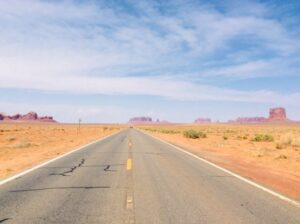
Instead of boredom as something to shoo away, some see it as a rest stop on a longer path to discovery and creativity. Photo by Laura Kelly
This summer I joined a large group of broken people.
After a torqued misstep and a hard fall onto a broken sidewalk, I ripped my meniscus and watched my knee swell into what looked like a head of angry cauliflower. Inside, it felt like a batter of hot lava spiked with razor blades. As I awaited orthoscopic surgery in July, I hobbled around the house, ice packed the joint into submission, and felt sorry for myself. I believed I had some valid reasons for my self-pity, but because I had a three-month summer vacation, a backyard full of pine trees that rustle in the summer wind, and loving friends, those poor-me feelings didn’t find sufficient traction.
Instead, I moved onto boredom.
I am someone who does not get bored easily. Or perhaps I don’t admit it as often as I feel it. We live in a culture that assigns status to busyness. Stimulation is only a scroll or click away. Productivity is the holy grail, and boredom is not a celebrated state in our attention-hijacking economy.
I have spent much of my life regarding boredom as a personal failing, much like Dino did, the protagonist of Alberto Moravia’s novel called Boredom. “Boredom to me consists in a kind of insufficiency, or inadequacy, or lack of reality.” That’s how I saw it, too. If my inner life was a multi-plex, couldn’t I just cue up another reel to capture my attention and ferry me into stimulation?
Like everyone, I suppose, I can get bored cornered at a party by someone who drones through a story, by a professor bloviating through a lecture, or by an unexpected empty evening colliding with a lack of energy and imagination. Like many, I suspect, I’ve tucked into binging Netflix or pouring another glass of wine as diversionary tactics to combat my occasional bouts of boredom.
Boredom has vexed evolutionary psychologists who believe that emotions should evolve for our benefit–not to push us to self-destruction. “The very fact that boredom is a daily experience for many suggests it should be doing something useful,” says Heather Lench at Texas A&M University. Feelings like fear help us avoid danger. What does feeling boredom achieve?
First off, boredom does not mean you have nothing to do. “When we’re bored, there are two key things happening in our mind,” says John Eastwood, a psychologist at York University in Canada, and author of Out of My Skull: The Psychology of Boredom. “The first thing is what I would call a desire bind. That’s when someone is kind of stuck because they desperately want to do something but they don’t want to do anything that’s on offer. Secondly, when you’re bored, your mental capacity is lying fallow.”
Laying fallow like soil left to rest and regenerate.
Contemporary research shows that being in a state of boredom encourages us to create because our brain is signalling that our current situation is lacking. Letting our minds wander is crucial for creativity; we can only attain this state if our mind is idle. Boredom beautifully idles the mind.
Even though I felt housebound and irritable, my boredom this summer didn’t feel as if it were a response to being stuck. Eastwood, like other researchers who study boredom, encouraged me to see boredom as a rest stop on a longer journey. “When you feel bored, because it’s an aversive and uncomfortable state, you’re motivated to look for something else. In that gap there’s a real chance to discover something new.”
Author Neil Gaiman calls boredom part of his writing process. “Ideas come from daydreaming,” he says. “They come from drifting. If you want to get a good idea for a book, you have to let yourself get so bored that your mind has nothing better to do than tell itself a story.”
Boredom also fascinated the late writer David Foster Wallace. One of his manuscripts published posthumously contained a note that says, “It turns out that bliss – a second-by-second joy and gratitude at the gift of being alive, conscious – lies on the other side of crushing, crushing boredom.”
I see boredom now as a signal flag, not a failure of imagination. It is an incubation space that I sometimes rush to fill, but it is a temporal interior space I need for ideas to bloom, for associations to swirl, and for thoughts to coalesce. Where I saw boredom as something missing, now I see it as something necessary.
Not everyone shares my perspective.
“There is something more terrible than a hell of suffering,” the French novelist Victor Hugo wrote in his book Les Misérables in 1862. “A hell of boredom.”
Bring it, I say.
.

